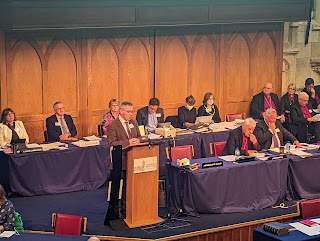Bishop Veneables calls for action on climate change
The Presiding Bishop of the Anglican Church of South America, Bishop Greg Venables is calling together the bishops of six countries in South America to discuss the challenges posed by climate change. Bishop Venables said, “The gathering is aimed at equipping bishops and Church delegates in defining the focus and strategies to respond to the ever-growing environmental challenges resulting from climate change. In particular, the event will provide a space for mutual learning and reflection in order to define concrete steps that will put the Fifth Mark of Anglican Mission into action: ‘To strive to safeguard the integrity of creation and sustain and renew the life of the earth.’”
This is a timely call to action. For a number of countries in South America are beginning to suffer severe impacts from climate change. For example, 70 % of Peru’s hydroelectric power and Lima’s drinking water comes from glacial meltwater. Glaciers that have shrunk by a third since 1970 and, at the current rate of melting, may only last another 50 years. In other countries, the spread of Dengue Fever has increased because a changing climate has enlarged the suitable range for the Aedes aegypti mosquito that spreads the disease.
In calling for action about climate change Bishop Venables is setting an example for bishops elsewhere to speak up about the importance of environmental issues.
There is a growing awareness of the need to act for climate justice within the Church of Ireland. Several bishops in the Church of Ireland have used the Fives Marks of Mission in recent years to look at how the church’s mission includes caring for creation. There has also been action by the Representative Church Body, at the 2017 General Synod a motion was passed to divest from coal and tar sands investments and in 2018 a series of projects were launched to increase environmental awareness at a parish level.
We need to follow Bishop Venables’ example and make responding to climate change a priority. Christians need to act with greater energy to help the most vulnerable and to call on our governments to transform to low-carbon economies more rapidly.



Comments